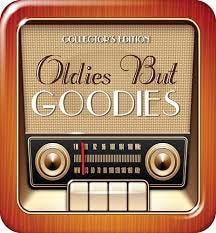The Truth
What Happened To It? #130

As a child, my parents taught me to tell the truth - saying things according to fact or reality. They punished me more than once for stretching it. I learned the lesson well!
While Dan was struggling with dementia, I got very good at lying. He couldn’t handle the truth and resisted everything. I couldn’t tell him about a doctor’s appointment because he’d refuse to go. I invented reasons to do something that he would otherwise reject.
When referring to people with dementia, experts talk about
“fiblets” - the untold truth told to make a person feel better
therapeutic lies - saying she's gone to the store” rather than stating his mom died years ago
white lies - saying what they think are harmless lies to prevent further damage.
I used them all - but I knew the difference between the truth and a lie - the lies were my response to a challenging situation - a survival skill if you will.
Truth has been on my mind recently because I don’t know what it is anymore. Misinformation abounds in the news and social media - opinions and facts are mushed. Perhaps, this is nothing new. Maybe I was naive, there is more of it, or I’m becoming more aware. But, examples seem plentiful:
Politicians say what their constituents want to hear or what keeps them in power.
Doctors prescribe specific drugs because they get a kickback.
Judges make rulings based on their political affiliation rather than the law.
Companies promote and sell products they know are harmful.
Scammers make money fraudulently.
People make decisions without being aware of their biases and prejudices.
Assisted living facility staff make promises they don’t or can’t keep.
Expert witnesses testify in court according to who paid them.
I had never heard of “fake news,” but quickly learned it was news that conveys or incorporates false, fabricated, or deliberately misleading information and news characterized as such.
Then there are “alternative facts.” According to the Slang Dictionary
A fact exists—what we call “reality” or “truth.” An alternative is one of the choices in a set of given options; typically, the possibilities are opposites. So to talk about alternative facts is to talk about the opposite of reality.
The new kid on the block is artificial intelligence. AI leverages computers and machines to mimic the problem-solving and decision-making capabilities of the human mind. I don’t know much about it other than that fake videos like this could change the world’s course.
As an older adult wishing to age well, it is essential to know the truth. I have written about this concern in at least two articles
But I want to mention it again because figuring out who or what to believe is becoming increasingly difficult.
Many sites offer suggestions. Let me share a video and a website.
The website Mind Tools offers similar advice. They suggest people
Develop a critical mindset - “questioning a belief system by locating the premises underlying a statement or conclusion, whether we agree with it or not.”
Check the source of the article.
See who else is reporting the story.
Examine the evidence.
Don't take images at face value.
Make sure it "sounds right."
I don’t have the answers, but I know it’s an important topic worthy of further research as we age well.
Don’t Fix Problems. Create Solutions “When we face a new problem we know will happen again, we have a choice: fix it right now and move on or spend extra time creating a solution that won’t solve our problem immediately but will prevent it from happening in the future.”
The Hour of Decision “Our time is limited. Resources such as money and energy can ebb and flow, but time? Time remains the great equalizer for each of us.”
If you want to contribute to my work, consider donating to the Alzheimers Association. This link takes you to their website. The choice is yours.



I agree often the news is not good and there is a lot of misinformation, but I was sad to read in the comments that people have stopped listening or reading the news. I think it is important to stay engaged. Imagine if you just convince one person that what they heard is misinformation….
Thanks Janice - I stopped watching main stream media about the time Don passed, almost five years ago now, and have to say I don't miss it. I'm not totally in the dark as there are always friends and family willing to keep me posted. However, I agree with you totally about the importance of doing my own "due diligence" and being mindful at what crosses my path - whether that's via my computer, iPhone, iPad, television, radio or even individuals wanting to share the latest and greatest drama that appears to be taking place.
With regard to dementia, we too have an elder in our midst who we adore and love dearly. It's not an easy journey and I'm sure your posts give many people encouragement and new ideas. Well done.